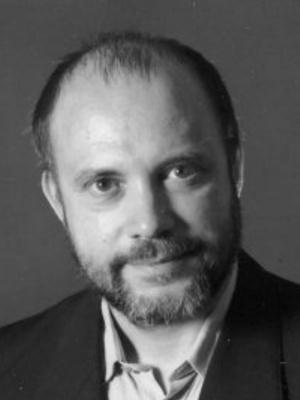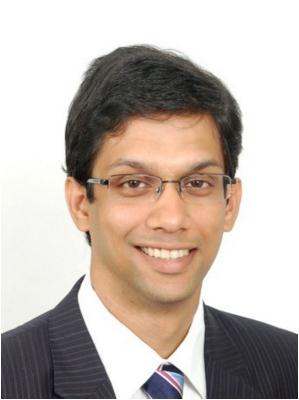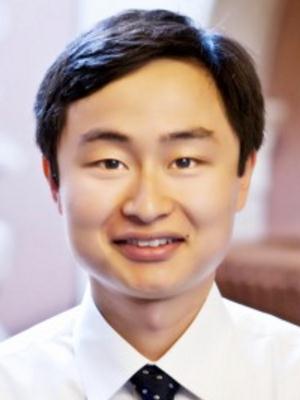Workshop on Spatial Stochastic Models for Wireless Networks (SpaSWiN) May 13, 2016 will be held in conjunction with WiOpt 2016 at the Arizona State University, USA. The performance of wireless networks depends critically on the spatial configuration of the transmitter and receiver nodes. As a result, the modeling of such networks requires methods and tools from point process theory, stochastic geometry and random graph theory. The art of modeling wireless networks is strongly multi-disciplinary, combining these spatial, stochastic tools with information and communication theory, networking theory, combinatorics, and game theory. SpaSWiN is historically the first workshop specifically devoted to the use of spatial stochastic models for improved design of wireless networks. Building on the success of the eleven previous venues of the workshop: in Riva del Garda (2005), Boston (2006), Limassol (2007), Berlin (2008), Seoul (2009), Avignon (2010), Princeton (2011), Paderborn (2012), Tsukuba Science City (2013), Tunisia (2014) and Mumbai (2015), the goal of SpaSWiN 2016 is to bring together researchers from the various disciplines involved in spatial models of wireless communications. Please join us in Arizona State University, USA, on May 13, 2016.
The technical program committee is soliciting contributions on:
- Applications of point processes, stochastic geometry and random graph models for the design and analysis of wireless and cellular networks
- Novel spatial stochastic models for analysis and design of wireless networks
Authors are invited to submit papers via EDAS. Submitted manuscripts should have 5 to 8 pages, including figures, appendix and bibliography. They should be formatted in two columns with a point size greater or equal to 10pt. Submissions will be done electronically in Adobe PDF format. Accepted papers will be published in IEEE Xplore.
Important Dates
Paper submission: February 15, 2016, 23:59 PST (extended and firm)
Notification of acceptance: March 1, 2016
Camera-ready/registration due: March 15, 2016, 23:59 PST
Download Call for Papers (pdf)
The submission is handled via the EDAS system.
Registration
To register, please go to https://wiopt2016.regfox.com/wiopt2016. A "Workshop Only" registration is sufficient. After you pay for the registration, record the registration code. Enter the registration code at the EDAS paper information page.
Keynote speaker
 |
|
Francois Baccelli University of Texas at Austin |
Workshop Schedule
| 09:00 am – 9:45 am | A sufficient condition for the tail asymptotics of SIR distribution in downlink cellular networks
Naoto Miyoshi (Tokyo Institute of Technology, Japan); Tomoyuki Shirai (Kyushu University, Japan) |
| 09:45 am – 10:30 am | Performance Analysis of Two-Tier Networks with Closed Access Small-Cells
Gourab Ghatak (CEA-LETI, France); Antonio De Domenico (CEA-LETI Minatec, France); Marceau Coupechoux (Telecom ParisTech, France) |
| 10:30 am – 11:00 am | Coffee Break |
| 11:00 am – 12:00 pm | Keynote Talk: Dynamics and Stochastic Geometry
Francois Baccelli (University of Texas at Austin) |
| 12:00 pm – 1:30 pm | Lunch Break |
| 01:30 pm – 02:15 pm | Fading in Base Station Selection and Evaluation
Timothy X Brown (University of Colorado, USA); Prasanna Madhusudhanan (University of Colorado at Boulder, USA) |
| 02:15 pm – 03:00 pm | The Effects of Mobility on the Hit Performance of Cached D2D Networks
Chedia Jarray (ENIG - University of Gabes, Tunisia); Anastasios Giovanidis (CNRS - Télécom Paristech, France) |
| 03:00 pm – 03:45 pm | How does mobility affect the connectivity of interference-limited ad hoc networks?
Pete Pratt (University of Bristol, United Kingdom); Carl P Dettmann (University of Bristol, United Kingdom); Orestis Georgiou (Toshiba Telecommunications Research Laboratory, United Kingdom) |
Workshop Chairs
 |
 |
|
Radha Krishna Ganti Indian Institute of Technology Madras |
Xinchen Zhang Qualcomm |
TPC members
| Patrick Thiran | EPFL |
| Martin Haenggi | University of Notre Dame |
| Jeff Andrews | University of Texas at Austin |
| Marios Kountouris | Huawei Technologies |
| Olivier Leveque | EPFL |
| Wenyi Zhang | University of Science and Technology of China |
| Kiran Kuchi | IIT Hyderabad |
| Sayandev Mukherjee | DOCOMO Innovations Inc. |
| Tony Q. S. Quek | Singapore University of Technology and Design |
| Rahul Vaze | TIFR |
| Steven Weber | Drexel University |
| Harpreet Dhillon | Virginia Tech |
| Sarabjot Singh | Intel Corporation |
| D. Yogeshwaran | Indian statistical institute Bangalore |